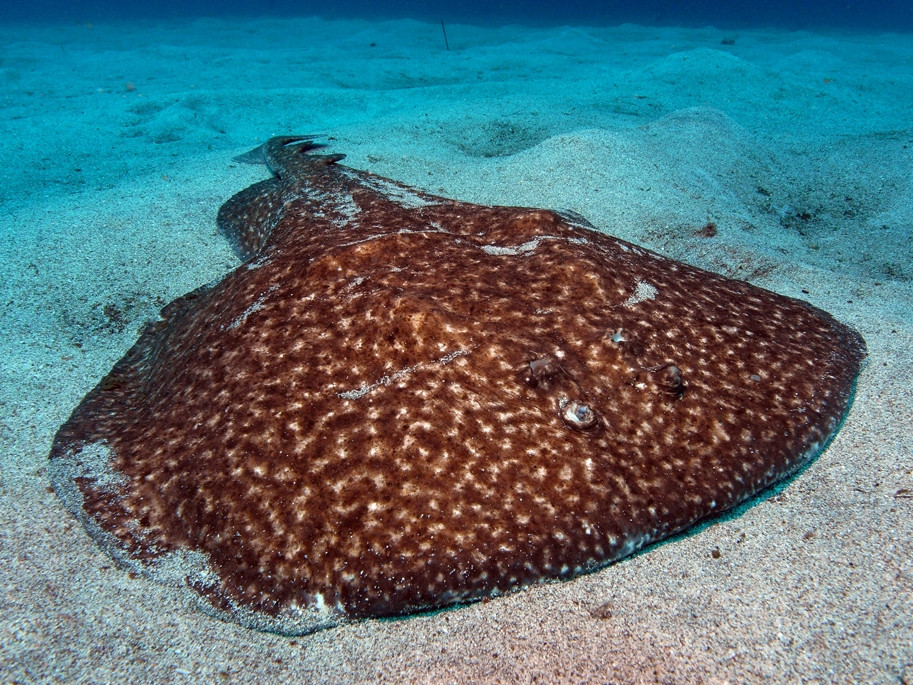Throughout the world in the past (and even today in some parts) there were certain things which, in the eyes of humans, must have seemed immensely powerful and even terrifying and thus deserving of (or perhaps demanding in order to avoid their wrath) a priviledged place in their various faiths. These things often became known as creator deities, or the rulers of all other gods. These include, mainly, lightning, the flood waters, the moon, and especially, the sun.
But what would become central in the venerations of blind sentient alien squids?
These are the same squids than in this question, so I'm just going to copy and paste the same details I provided about them there:
These aliens are completely blind, as they branched off from a species that lived primarily in caves and the water they live in is actually a murky water-based solution making vision less useful then here on earth.
They can however very effectively echolocate, sense nearby electromagnetic disturbances and feel the basic chemical composition of certain objects by touch.
Other than the difference mentioned above the bodies of water they live in are essentially the same as our own seas and oceans.
Now, taking into account that they cannot see their sun, the stars or in fact space at all (because, well... they can't see), what would these squids instead recognize as the form of the mightiest gods?
I am, of course, looking for multiple likely possibilities as these squids do not have a monoculture as in star trek.
Note: I want to make it clear that I am not asking how their gods or their religions would be. Simply what would be the "inspiration" (what natural object or phenomena) for their primary god (since like most human religions, most of theirs are also polytheistic).

